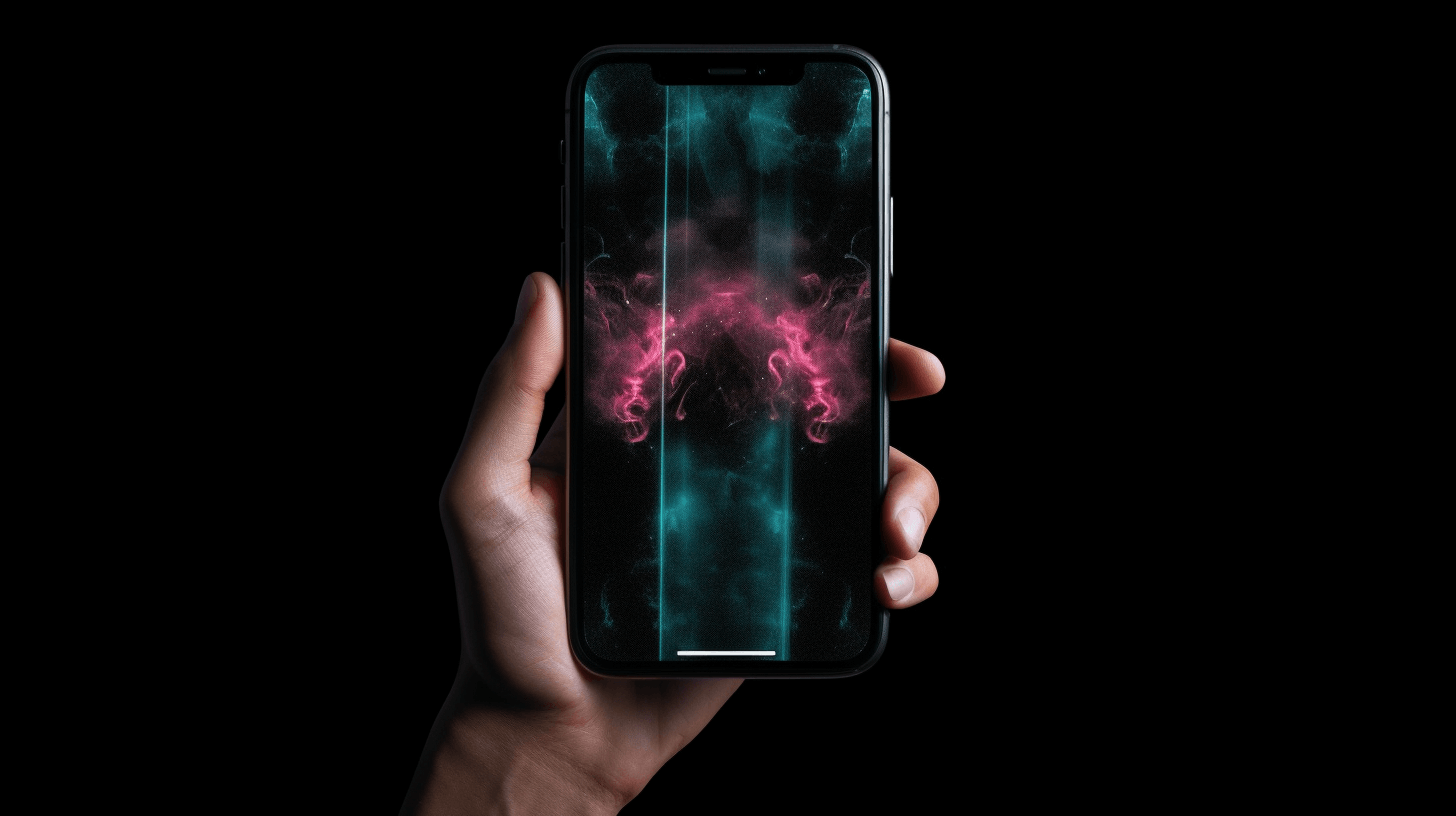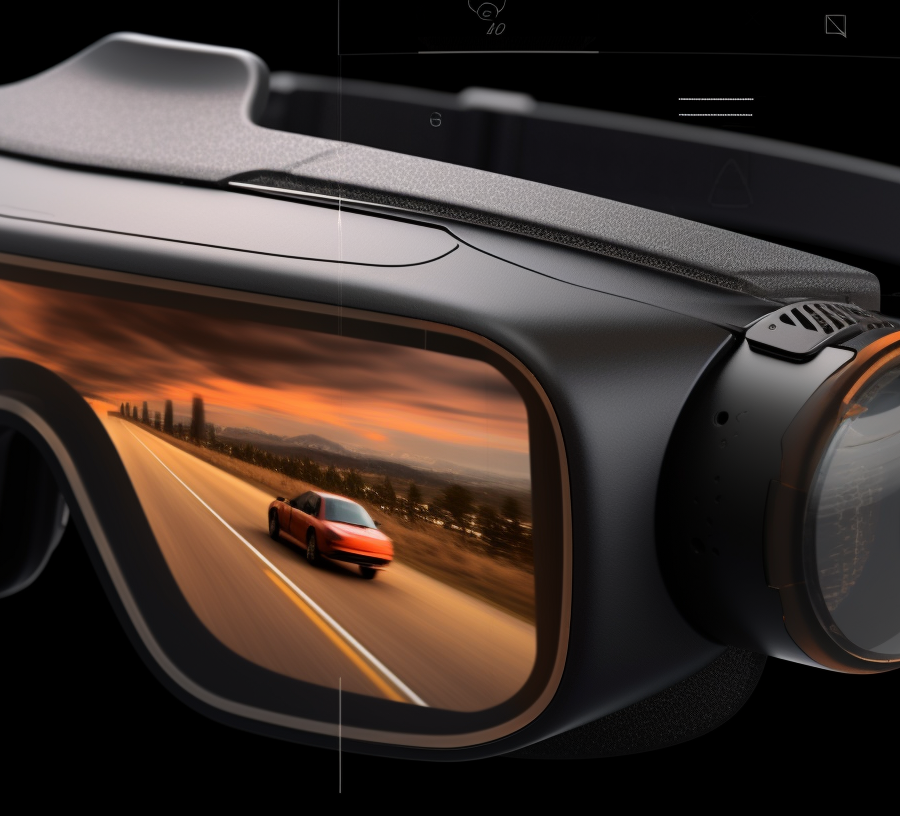Da TikTok Tita’s 🕺💃 Taking on Montana: No Can Ban, Bruddah! 🐎🚫📲
Aloha kakou! Major tings going down in Montana, where some serious kine TikTok users wen’ sue da state 🏛️📝, claiming that da new TikTok ban no stay constitutional. Spokeswoman fo’ da state attorney general went say dat his office “expected one legal challenge” and was “fully prepared for defend da law” 🤨👊⚖️.
Da court action wen’ begin aftah one group of TikTok users wen’ challenge Montana’s fresh TikTok ban, set for start on da first day of da new year 🗓️⏱️. This one no like any oddah before in da US.
Da TikTok users wen’ make da lawsuit claiming da new law wen’ broke their First Amendment rights 🗣️📜🔨. Dey wen’ argue dat da ban, which Gov. Greg Gianforte wen’ sign off, was over da top and outside Montana’s powers as one state. Da lawsuit was filed in U.S. District Court 🏛️🖋️.
But ho, da ban wen’ make plenny noise from TikTok and groups focused on civil liberties and digital rights 💥📢📱. Montana lawmakers and da Governor, who stay one Republican, argue da ban gotta happen for stop Americans’ personal info from getting in da hands of da Chinese government 🇨🇳💾🙅♂️. You know, TikTok get owned by da Chinese company ByteDance.
Undah dis new law, TikTok going get fines if dey keep running da app inside da state, and da big app store providers, like Google and Apple, also going get fines if TikTok stay available for download inside Montana 🚨💸📲.
TikTok itself or any leading civil liberty groups nevah talk about any lawsuit plans on Thursday 🤔🗂️🙊. Brooke Oberwetter, one spokeswoman for TikTok, nevah say nothing about whether da company would file one lawsuit.
But, she did say dat da ban wen’ step on da First Amendment rights of da folks in Montana and dat da company would keep “working for defend da rights of our users” 👥🛡️💪. She said dat one federal ban from 2020 nevah pass legal tests and dat Montana nevah have one good plan for making da ban happen.
She also pointed out statements from civil and digital rights groups who raised da same kine concerns. TikTok no ansah right away wen’ people ask for comment on top da lawsuit 📨⏰🤷♀️.
One lawyah from da Knight First Amendment Institute at Columbia University, Ramya Krishnan, wen’ say dat da U.S. Constitution protected Americans’ rights for access da social media platforms of their choice 💻📜🗽. To justify one ban, she wen’ say, Montana gotta show dat their privacy and security concerns stay real and dat dey no can deal with it in less drastic ways 🕵️♀️🔐🔍.
One trade group dat get TikTok as one member and wen’ sue before for block state laws against tech companies, NetChoice, also wen’ say da ban wen’ break da Constitution. Krista Chavez, one spokeswoman for da group, wen’ say NetChoice no have plans for sue for challenge da law right now.
Da people suing Montana are five residents who “create, publish, view, interact with and share videos on TikTok” 🏠📹🔄, according to their lawsuit. Their lawyers nevah ansah right away wen’ people ask for comment.
Da lawsuit wen’ say Montana “no can ban its residents from watching or posting to TikTok than it could ban The Wall Street Journal because of who owns it or da ideas it publishes” 🚫📰💡. Da users also argued dat da law wen’ break parts of da Constitution dat give da federal government da only power over foreign affairs and stop states from regulating interstate commerce.
TikTok users have won before in blocking a ban of da app. In 2020, one judge sided with a group of creators who challenged one attempt for ban da app by President Donald J. Trump. TikTok and ByteDance also separately sued for stop da president’s actions.
After da federal government and more than two dozen states banned TikTok from government devices in recent months, Montana went make their own law. Lawmakers and intelligence officials have said TikTok, because of its ownership, could put sensitive user data into da hands of da Chinese government. Dey also argued dat da app could be used for spread propaganda.
TikTok says it has never been asked to give, nor has it given, any U.S. user data to da Chinese government.
But many experts raised questions about whether da law could be enforced. Internet users can use virtual private network software for hide their location. Individuals who live in Montana border towns could get access to TikTok and other mobile apps through cellular towers in neighboring states 📡🔍🗺️.
In one email, Emilee Cantrell, one spokeswoman for da state’s attorney general, Austin Knudsen, wen’ say dere was existing technology for restricting app use within one specific location. The technique, known as geofencing, is “already in use across da gaming industry,” which da state’s Justice Department also regulates, Ms. Cantrell said.
If companies no follow da ban, she said, da agency “will investigate and hold offending entities accountable in accordance with da law” 🕵️♀️⚙️⚖️.
When asked about da lawsuit filed by TikTok users, a second spokeswoman for Mr. Knudsen, who is named the defendant in the lawsuit, wen’ say his office “expected a legal challenge” and was “fully prepared to defend da law” 🗂️⚖️🛡️.
Da legislation puts the burden for enforcing the ban on TikTok, Apple and Google. Under da law, TikTok could be fined $10,000 for each individual violation of the ban and an additional $10,000 every day a violation continues. Apple and Google would face da same fines if they allowed da app to be downloaded in da state.
While the State Legislature was considering the ban, a trade group representing Apple and Google wen’ say it would be impossible for da companies for restrict access to an app inside a single state.
Google and Apple declined for comment.
So, there we have it, bruddahs and sistahs. Da TikTok drama in Montana. Going be interesting for see how this all shakes out. Until then, stay aloha! 🤙🏄♀️🌴
NOW IN ENGLISH
🐎🚫📲 TikTok Aficionados take on Montana: It’s a No-Ban Zone, Fellas!
Hello folks! Major news is emerging from Montana where a group of serious TikTok users 🏛️📝 have taken legal action against the state. They’re claiming that the recent TikTok ban infringes upon constitutional rights. The spokesperson for the state attorney general noted that his office had “expected a legal challenge” and was “fully prepared to defend the law” 🤨👊⚖️.
This legal tussle began when the group challenged Montana’s new TikTok ban, which is set to take effect on New Year’s Day 🗓️⏱️. This ban is unique, being the first of its kind in the United States.
The TikTok users lodged a lawsuit claiming the new law violated their First Amendment rights 🗣️📜🔨. They argued that the ban, signed by Governor Greg Gianforte, greatly exceeds Montana’s legal authority as a state. The lawsuit was filed in U.S. District Court 🏛️🖋️.
The ban has caused an uproar among TikTok, civil liberties, and digital rights groups 💥📢📱. Montana lawmakers and the Governor, a Republican, argue that the ban is necessary to prevent Americans’ personal information from falling into the hands of the Chinese government 🇨🇳💾🙅♂️. TikTok is owned by the Chinese company ByteDance.
Under this new law, TikTok will be penalized if they continue to operate the app within the state, and major app store providers like Google and Apple will also face penalties if TikTok remains available for download in Montana 🚨💸📲.
TikTok or any leading civil liberty groups did not announce any plans for a lawsuit on Thursday 🤔🗂️🙊. Brooke Oberwetter, a spokeswoman for TikTok, refrained from commenting on the likelihood of the company filing a lawsuit.
However, she did mention that the ban violated the First Amendment rights of the folks in Montana and that the company would continue “working to defend the rights of our users” 👥🛡️💪. She said that a federal ban in 2020 didn’t hold up in court and that Montana didn’t have a feasible plan for implementing the ban.
She also pointed out statements from civil and digital rights groups who shared similar concerns. TikTok didn’t immediately respond to requests for comment on the lawsuit 📨⏰🤷♀️.
Ramya Krishnan, a lawyer from the Knight First Amendment Institute at Columbia University, explained that the U.S. Constitution protected Americans’ rights to access social media platforms of their choice 💻📜🗽. To justify a ban, she said, Montana would need to prove that its privacy and security concerns were legitimate and could not be addressed in less severe ways 🕵️♀️🔐🔍.
NetChoice, a trade group with TikTok as a member and known for its past lawsuits blocking state laws targeting tech companies, also claimed that the ban violated the Constitution. Krista Chavez, a spokeswoman for the group, stated that NetChoice currently had no plans to challenge the law via a lawsuit.
The plaintiffs suing Montana are five residents who “create, publish, view, interact with and share videos on TikTok” 🏠📹🔄 according to their lawsuit. Their lawyers did not immediately respond to requests for comments.
The lawsuit argued that Montana “can no more ban its residents from viewing or posting to TikTok than it could ban The Wall Street Journal because of who owns it or the ideas it publishes” 🚫📰💡. The users also contended that the law breached provisions of the Constitution that grant the federal government exclusive power over foreign affairs and prohibit states from regulating interstate commerce.
TikTok users have successfully obstructed a ban of the app in the past. In 2020, a judge sided with a group of creators who challenged an attempt to ban the app by President Donald J. Trump. TikTok and ByteDance also separately sued to halt the president’s actions.
After the federal government and over two dozen states banned TikTok from government devices in recent months, Montana implemented its own law. Lawmakers and intelligence officials have asserted that TikTok, due to its ownership, could put sensitive user data in the hands of the Chinese government. They also contended that the app could be used to disseminate propaganda.
TikTok claims it has never been asked to provide, nor has it ever provided, any U.S. user data to the Chinese government.
Many experts have raised questions about the enforceability of the law. Internet users can employ virtual private network software to obscure their location. Individuals living in Montana’s border towns could gain access to TikTok and other mobile apps via cellular towers in neighboring states 📡🔍🗺️.
Emilee Cantrell, a spokeswoman for the state’s attorney general, Austin Knudsen, said via email that there’s existing technology for restricting app use within a specific location. The technique, known as geofencing, is “already in use across the gaming industry,” which the state’s Justice Department also regulates, Ms. Cantrell stated.
She warned that if companies don’t comply with the ban, the agency “will investigate and hold offending entities accountable in accordance with the law” 🕵️♀️⚙️⚖️.
When asked about the lawsuit filed by TikTok users, a second spokeswoman for Mr. Knudsen, who is named the defendant in the lawsuit, said his office “expected a legal challenge” and was “fully prepared to defend the law” 🗂️⚖️🛡️.
The legislation puts the onus for enforcing the ban on TikTok, Apple, and Google. Under the law, TikTok could be fined $10,000 for each individual violation of the ban and an additional $10,000 every day a violation continues. Apple and Google would face the same fines if they allowed the app to be downloaded in the state.
While the State Legislature was considering the ban, a trade group representing Apple and Google stated it would be impossible for these companies to restrict access to an app inside a single state.
Google and Apple declined to comment.
So there we have it, folks. The TikTok drama in Montana continues. It’ll be interesting to see how this all shakes out. Until then, stay tuned! 🤙🏄♀️🌴






